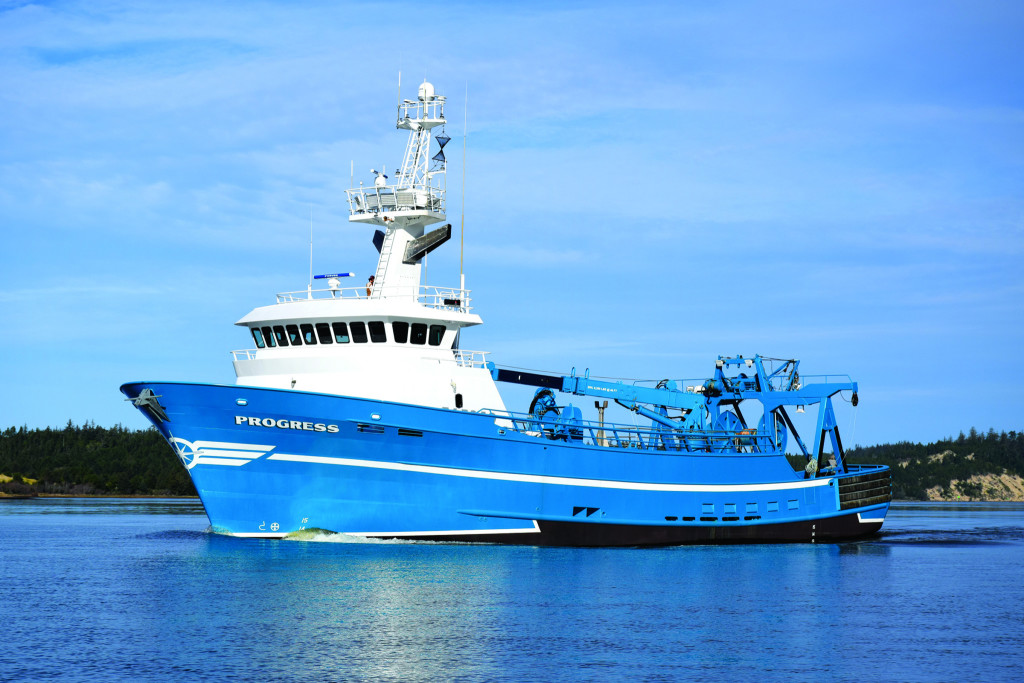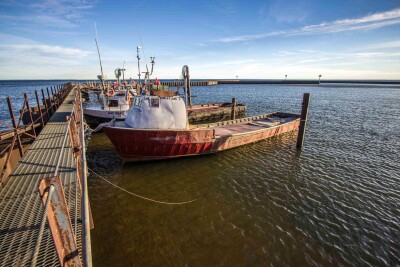Two Alaska Community Development Quota groups partnered with Japanese-owned Maruha Nichiro in the purchase of inshore pollock quota, vessels and processing capacity from Evening Star Fisheries and Cooke-owned Icicle Seafoods.
On Feb. 1, Alaska’s Norton Sound Economic Development Corp. and Coastal Villages Region Fund announced an expansion of their partnership with Maruha Nichiro to catch and process Bering Sea pollock quota.
The Coastal Villages Region Fund and Norton Sound Economic Development Corp. investment accounts for 75 percent ownership of the fishing assets, while Maruha Capital Investment is a 25 percent stakeholder (a limitation on foreign ownership of fishing vessels or companies that own fishing vessels, stipulated by the American Fisheries Act). That purchase includes nine fishing vessels from Evening Star Fisheries and four percent of Bering Sea pollock quota. The fleet, which includes the recently rebuilt F/V Progress, can operate in both the Bering Sea and Gulf of Alaska.
“Thirty years ago, a man with a vision to help our people fought and made it a reality. Harold Sparck, with the help of the late Ted Stevens and others created the Community Development Quota program, paving the way for coastal Alaska communities to earn economic benefit and opportunity from the lucrative Bering Sea fishery,” said Larson Hunter, Coastal Villages Region Fund chairman. “Partnering with NSEDC, this deal is a continuation of that vision, which will help to provide more opportunity for future generations. We owe it to our predecessors to continue their legacy and continue increasing our benefits and services to our region residents.”
The expanded partnership brings the total inshore pollock quota owned by the three companies to just over 8 percent of the overall non-CDQ fishery in the Bering Sea. The two CDQ companies own 75 percent of the combined operations, and are the managers of the vessels and fishing activities.
Additionally, Westward Seafoods, a subsidiary of Maruha Capital Investment, purchased whitefish processing assets from Icicle Seafoods and Evening Star — principally the Northern Victor, a processing plant permanently moored in Dutch Harbor. This is an addition to the company’s two other processing plants in the region.
Maruha Nichiro divested itself of Alaska salmon operations when it sold Peter Pan Seafoods to a suite of new owners at the tail end of 2020.
“Maruha Nichiro is pleased to be able to expand our partnership with NSEDC and Coastal Villages Region Fund,” said Mark JoHahnson, president of Westward Seafoods. “This new opportunity will allow us to enhance the value of service we bring to all our stakeholders: customers, business partners, shareholders, employees and the local communities where we operate.”
In 2011, Coastal Villages Region Fund and Siu Alaska (a subsidiary of Norton Sound Economic Development Corp.) joined to form BSAI Partners. Together with an affiliate of Maruha Nichiro, the partners purchased six inshore pollock vessels with just over 4 percent of the Bering Sea pollock fishery quota.
“We are thankful for our continued partnership with NSEDC and Maruha Nichiro to bring more opportunities to Western Alaska through our growing investments in the Bering Sea,” said Eric Deakin, CEO of Coastal Villages Region Fund. “This expansion by Alaskans in the Bering Sea brings more direct benefits to our communities and gives us a stronger voice in the management and protection of resources for future generations. We’ve had a great partnership with Maruha Nichiro for the past decade and are excited about this expansion.”
The western Alaska Community Development Quota Program was established under the Magnuson-Stevens Fishery Conservation and Management Act to provide western Alaska villages with the opportunity to participate and invest in fisheries in the Bering Sea and Aleutian Islands fisheries. Six non-profit corporations represent 65 communities with the purpose of economic development in western Alaska and goals to alleviate poverty, provide economic and social benefits to residents, and achieve sustainable local economies. The allocations were implemented in 1992 for pollock, 1995 for halibut and blackcod, and 1998 for multispecies groundfish.







